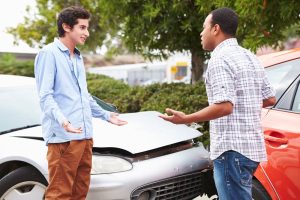The weather in the UK over the last few weeks has been incredibly varied. We have encountered wind, rain and icy roads very often during the same day, causing havoc for commuters and pedestrians. Unfortunately, this type of environment often leads to potentially serious/life-threatening accidents. In this article we will take a look at where you stand with regards to weather-related compensation claims. Who is liable, do “acts of God” have a role to play and how can you pursue compensation?
Reasonable time to act
Such is the standard of weather forecasting today that the general public, and more specifically local authorities, will likely be aware of serious weather threats well in advance. This brings us onto the subject of “reasonable time to act” which can be a very important element of any compensation claim. Perhaps the best way to demonstrate this is to highlight a real life scenario:-
- Gritting of roads
There are a number of factors to take into consideration with regards to local authority gritting of roads. The first is that they are obliged to start with the main roads, to keep the traffic moving, and then move further down the pecking order.
As we touched on above, local authorities tend to be in receipt of detailed weather forecasts well in advance of potentially dangerous scenarios. So, if a main road had not been gritted prior to, and potentially after, a serious bout of frost leading to an accident, where would the local authority stand? If the authorities could prove they were actively gritting roads then they may well be able to mitigate potential liability. However, if they were unorganised, or simply failed to send out the gritting vehicles, there may well be serious consequences and compensation to pay in the event of accidents.
There are other scenarios where “reasonable time to act” would come into play including:-
- Closing dangerous roads
- Installing flood protection
- Closing bridges in high winds
- Safe proofing buildings prior to storms
The above examples should give you an idea of areas where “reasonable time to act” would come into play. Let us now move on to more common scenarios relating to weather compensation claims.
Most common weather-related accidents
We will now take a look at some of the more common weather-related accidents although in reality you can probably guess many of them. While the majority of victims may well shrug off their incident as “an act of God” this may not necessarily be the case. Therefore, if you are injured in a weather-related incident it is worth investigating further.
Car accidents
When discussing highways and byways much of the focus tends to be on the actions/non-actions of local authorities. However, it is worth noting that car drivers have a legal obligation to drive carefully and appreciate other vehicles and pedestrians around them. For example, if a road is badly flooded then any sensible driver would either avoid the area (if possible) or proceed with extra care. Those who simply drive on at “normal” speeds, causing accidents and injuries, would have limited scope for claiming the weather was responsible. Yes, the weather may not have helped the situation but it is still a legal obligation of all drivers (and to a certain extent pedestrians) to appreciate the conditions and take appropriate action.
It is also worth noting the legal obligations with regards to damaged vehicles. If you were to have an accident partially as a consequence of weather conditions, although partially as a consequence of substandard vehicle maintenance, then any case for compensation might be more challenging. In this particular scenario, the defendant could claim that substandard maintenance of the vehicle played a partial role in the accident and resulting injuries.
Flying debris
Unfortunately, during high winds there is a real risk of flying debris causing damage to vehicles, buildings as well as individuals. In event of potentially life threatening storm winds, local/national governments often issue warnings to avoid certain areas. This is effectively announcing that those who venture out during the extreme weather conditions do so at their own risk.
As a consequence, if you were hit by flying debris or there was perhaps damage to a vehicle or building then you may struggle to prove full liability and claim compensation. There may be some scope for action if certain buildings or parks for example were not “made safe” before the extreme weather. However, even in this situation the local authorities would look to prove they had taken reasonable action and issued the appropriate warnings.
Slips, trips and falls
As we head into winter, frosty mornings and the potential for snow, there is an increased risk of slips, trips and falls which are very common accidents. This may involve something as simple as a road or path which was not gritted or a slippery floor in a shop as a consequence of customers traipsing mud through the premises. Cases involving slips, trips and falls as a consequence of weather-related incidents would literally depend upon the time taken to respond to any potential dangers.
If a local authority or shopkeeper for example, was able to prove they took reasonable action or were unable to in the timeframe available, this could at least mitigate their potential liability. One example would be a slippery floor sign in a shop which should be brought out as soon as a potential danger is identified. In this scenario the slippery surface would also need to be addressed as soon as possible as the warning sign is only a short-term fix.
Most common injuries
Such is the array of potential injuries as a consequence of weather-related incidents that the list of most common injuries is fairly long. In reality, the majority of relatively minor and major injuries could be received in this type of situation. These include:-
- Crush injuries
- Concussion
- Cuts and bruises
- Broken bones
- Drowning
- Hypothermia
- Death
It is worth noting that public bodies, local authorities and the general public all have a legal obligation to act in an appropriate manner in instances of extreme weather. It is not difficult to imagine the array of potential injuries as a consequence of flying debris, dangerous road conditions and extreme wind/rain.
Proving liability
To recap, when looking to claim compensation for an injury caused by a third party, you need to prove liability. The main areas to consider with regards to weather-related compensation claims are:-
- Did all parties act appropriately?
- Were precautions taken in a timely manner?
- Did the defendant fulfil their legal obligations?
This could take in anything from gritting roads to securing signs on buildings in high winds, to closing roads and issuing official weather warnings. There may well be occasions where partial liability can be proven which would result in a reduced compensation claim. Indeed, we have seen many instances where the victim was also partially responsible. This then brings us onto another subject, acts of God.
Acts of God
Acts of God can play a major role in the event of injuries received as a consequence of dangerous weather conditions. If we take the extreme scenario where a tsunami causes significant damage to roads, resulting in vehicles colliding and numerous injured parties, this would be an act of God. However, if innocent parties had taken refuge, as instructed by the authorities, but were injured by those who had ignored such warnings, they could be held liable for injuries and compensation. In reality acts of God tend to be relatively straightforward but sometimes they can be used to mitigate liability.
Building a case
Building a case to claim compensation for injuries received during extreme weather conditions can be challenging. The traditional set of evidence would be required such as photographs, eye witness statements, medical data and the condition of those involved in the accident. There would also be a greater burden on the defendant to prove liability against for example local authorities with regards to the condition of highways and byways. In many cases the claim may hang on proof that they acted/failed to act in a reasonable timescale to mitigate any dangers.
There seems to be a general conception that sometimes weather-related accidents just happen. In some cases action should have been taken by third parties or more care/consideration by for example motorists, so it is not always straight forward.
Summary
Very often weather-related compensation claims simply come down to common sense. Did the defendant take the appropriate action within the appropriate timescale to avoid potential injuries? Did the victim act in an appropriate manner for example when driving in high winds/heavy rain?
While there is a general misconception that the courts fail to take into account “common sense” this is probably one of those areas where this concept is more visible. Yes, defendants and victims will all have their own legal obligations but did they act appropriately in light of the prevailing weather conditions? That is the main question.



